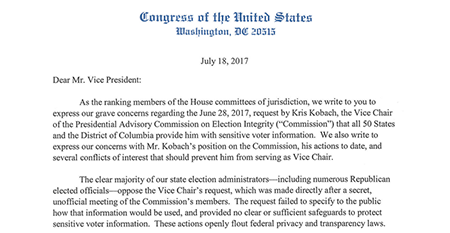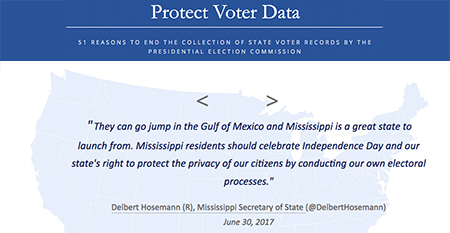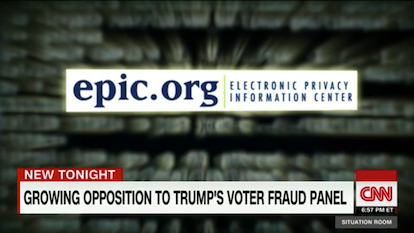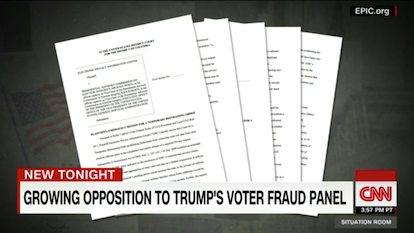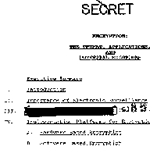Customs and Border Protection has published a system of records notice for the "Intelligence Records System." The agency proposes to exempt the database from many Privacy Act safeguards. The database contains detailed personal data from social media and commercial data services. CBP will use the "Analytical Framework for Intelligence" to secretly profile and evaluate social media users. In the FOIA lawsuit EPIC v. CBP, EPIC uncovered Palantir's role in Analytical Framework for Intelligence, a program that assigns "risk assessment" scores to U.S. travelers. EPIC is now pursuing a FOIA request to Immigration and Customs Enforcement seeking details of the agency's relationship with Palantir.
The D.C. Court of Appeals has ruled that warrantless use of a cell-site simulator or "stingray" violates the Fourth Amendment. The court found that Stingray devices enable "officers who possess a person's telephone number to discover that person's precise location remotely and at will." The court held that the use of a Stingray invaded a reasonable expectation of privacy and thus, was a Fourth Amendment search. EPIC recently filed a brief in a U.S. Supreme Court case arguing that warrantless location tracking violates the Fourth Amendment. EPIC has also promoted oversight of Stingrays by law enforcement agencies. An EPIC FOIA lawsuit in 2012 revealed that the FBI was using stingrays without a warrant, and that the FBI provided Stingrays to other law enforcement agencies. EPIC has also filed amicus briefs in federal and states courts arguing that cell phone location data is protected by the Fourth Amendment.
A federal court in Washington, DC has dismissed two lawsuits against the Office of Personnel Management over the data breaches that compromised the records of 22 million federal employees and family members. The court acknowledged the "troubling allegations" raised by OPM's victims but ruled that "the fact that a person's data was taken" is not "enough by itself to create standing to sue." EPIC has long argued that data breach victims should not wait until they suffer identity theft to sue the parties that failed to protect their data. EPIC also filed comments last year with OPM recommending limits on data collection, has recommended updates to the federal Privacy Act, and has urged the Supreme Court to recognize a right to "informational privacy" and to ensure Privacy Act damages for non-economic harm.


